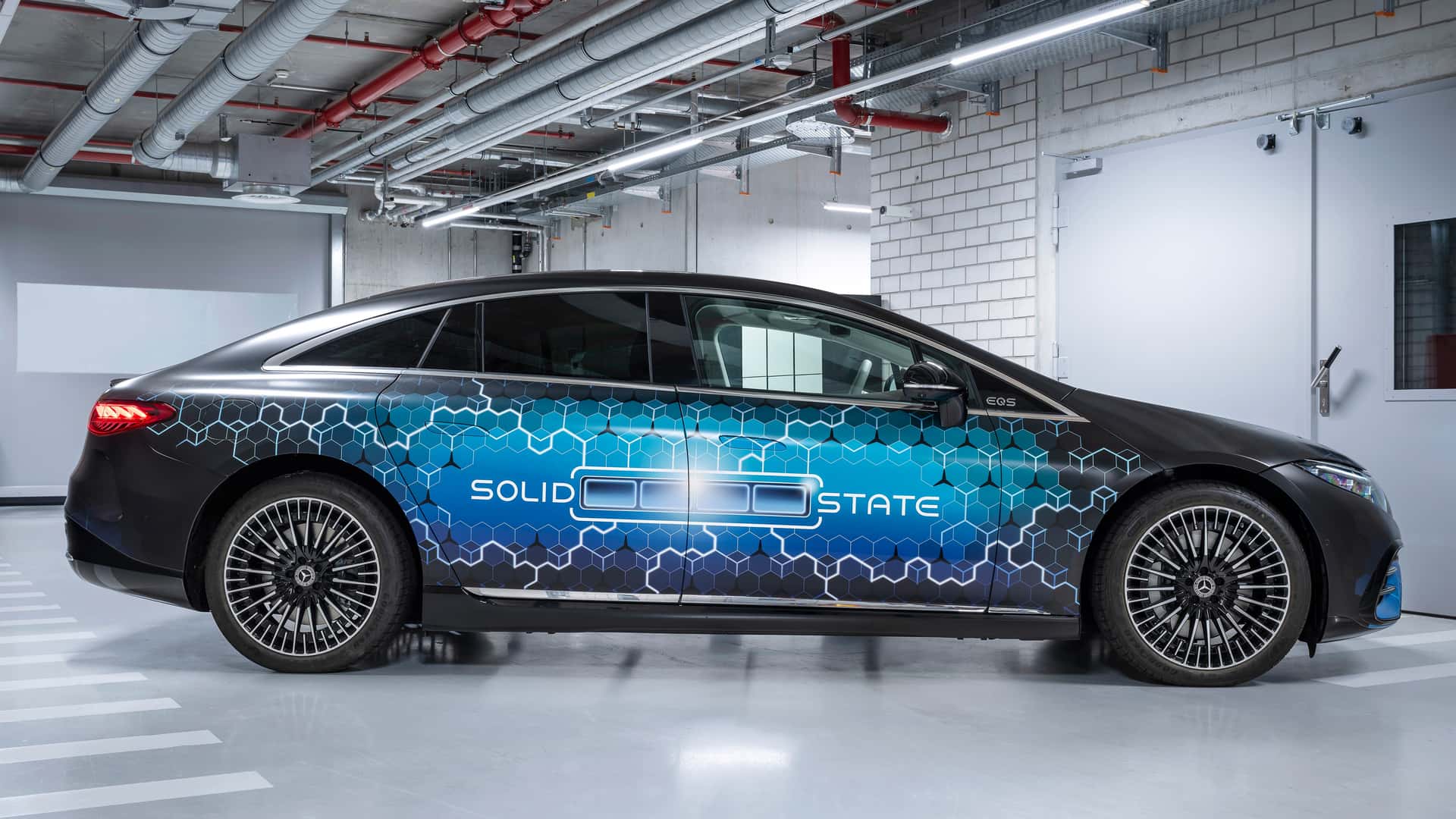
- Mercedes-Benz is bringing solid-state batteries to its EVs sooner rather than later.
- The company’s head of development said the range-boosting batteries will hit the market “before the end of the decade.”
- The German automaker has partnered with U.S.-based Factorial to develop solid-state batteries that promise up to 25% more range.
The elusive solid-state battery is getting closer to becoming reality, at least when it comes to electric vehicles. Mercedes-Benz said it expects to bring a production-ready solid-state-powered electric vehicle “before the end of the decade.”
The statement belongs to Markus Schafer, the German automaker’s head of development, who spoke with Automotive News’ German sibling Automobilwoche during an event in Copenhagen, Denmark.

That’s great news, seeing how solid-state batteries promise to offer up to 25% more driving range compared to a similarly sized conventional lithium-ion battery pack. In other words, if your current EV can go up to 300 miles on a full charge, a solid-state battery of the same size could increase that figure to 375 miles.
Other benefits include better safety. Thanks to increased thermal efficiency, there's less of a fire risk for solid-state batteries. Faster charging should be possible, too. If an automaker solves all of this, they will solve many of the common problems with today's EVs.
Mercedes-Benz partnered with U.S.-based Factorial to develop the solid-state batteries that will eventually make it into EVs anyone can buy. Factorial is also working with Stellantis, which said it would launch a demonstration fleet next year. Meanwhile, Mercedes-Benz already has an EQS prototype with solid-state batteries gathering data in the real world.
Compared to a conventional lithium-ion battery, which uses a liquid electrolyte to move electrons between charge cycles, a solid-state battery has a solid electrolyte, which allows for a higher energy density and improved fire safety. Weight reduction is also a potential bonus.
A stopgap between the two types of batteries is already being used by some automakers. Known as semi-solid-state batteries, these have a gel-like electrolyte and bridge the gap between liquid and all-solid packs by using existing manufacturing facilities and thus lowering costs.
Several automakers are working on bringing solid-state batteries to the mass market, but we’re not quite there yet. BMW is working with Solid Power to get things rolling, while Volkswagen is collaborating with QuantumScape.







